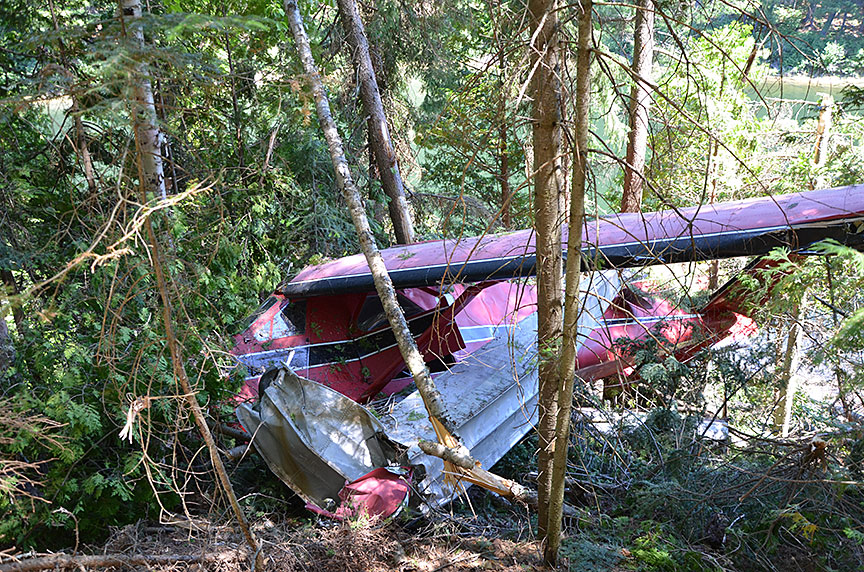Loss of control on landing
Sudbury Aviation Limited
de Havilland DHC-2 Mk. I, C-FHVT
Kennedy Lake, Ontario
The occurrence
The Sudbury Aviation Limited float-equipped de Havilland DHC-2 Beaver aircraft (registration C-FHVT, serial number 284) was on approach to Kennedy Lake, Ontario, with the pilot and 2 passengers on board, when the aircraft rolled to the left prior to the flare. The pilot attempted to regain control of the aircraft by applying full right rudder and right aileron. The attempt was unsuccessful and the aircraft struck rising tree-covered terrain above the shoreline. The aircraft came to a stop on its right side and on a slope. The pilot and the passenger in the rear seat received minor injuries. The passenger in the right front seat was not injured. All were able to walk to the company fishing camp on the lake. There was no fire and the 406 megahertz emergency locator transmitter (ELT) was manually activated by one of the passengers. One of the operator's other aircraft, a Cessna 185, flew to the lake after C-FHVT became overdue. A search and rescue aircraft, responding to the ELT, also located the accident site. Radio contact between the Cessna 185 and the search and rescue aircraft confirmed that their assistance would not be required. The accident occurred at 1425 Eastern Daylight Time.
Media materials
News release
Gusty crosswind and turbulence led to June 2014 loss of control on landing in Kennedy Lake, Ontario
Read the news release
Deployment notice
TSB deploys a team of investigators to an aircraft accident at Kennedy Lake, Ontario
Richmond Hill, Ontario, 25 June 2014 - The Transportation Safety Board of Canada (TSB) is deploying a team of investigators tomorrow to the site of an accident involving a de Havilland Beaver at Kennedy Lake, Ontario. The TSB will gather information and assess the occurrence.
Investigation information
Download high-resolution photos from the TSB Flickr page.
Class of investigation
This is a class 3 investigation. These investigations analyze a small number of safety issues, and may result in recommendations. Class 3 investigations are generally completed within 450 days. For more information, see the Policy on Occurrence Classification.
TSB investigation process
There are 3 phases to a TSB investigation
- Field phase: a team of investigators examines the occurrence site and wreckage, interviews witnesses and collects pertinent information.
- Examination and analysis phase: the TSB reviews pertinent records, tests components of the wreckage in the lab, determines the sequence of events and identifies safety deficiencies. When safety deficiencies are suspected or confirmed, the TSB advises the appropriate authority without waiting until publication of the final report.
- Report phase: a confidential draft report is approved by the Board and sent to persons and corporations who are directly concerned by the report. They then have the opportunity to dispute or correct information they believe to be incorrect. The Board considers all representations before approving the final report, which is subsequently released to the public.
For more information, see our Investigation process page.
The TSB is an independent agency that investigates air, marine, pipeline, and rail transportation occurrences. Its sole aim is the advancement of transportation safety. It is not the function of the Board to assign fault or determine civil or criminal liability.
